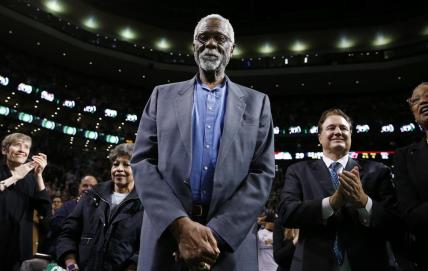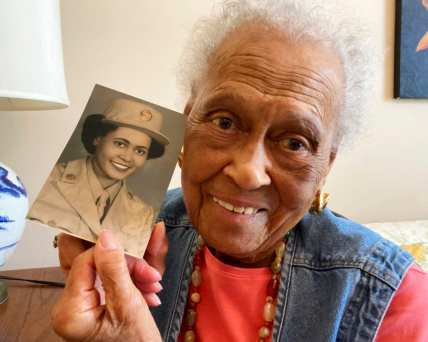Black British civil rights campaigner Roy Hackett dies at 93
Hackett also was a co-founder of the Commonwealth Coordinated Committee, which set up St. Paul’s Carnival, one of Britain’s oldest Caribbean festivals
British civil rights campaigner Roy Hackett, a leader of a bus boycott that played a key role in ending legal racial discrimination in the U.K., has died. He was 93.
The BBC and media outlets in Hackett’s home city of Bristol, England, reported his death on Wednesday. The city’s deputy mayor, Asher Craig, paid tribute to Hackett as “a humble, principled, freedom fighter.”
Born in Jamaica, Hackett came to Britain in 1952 — one of the thousands of people from Britain’s former colonies who helped rebuild the U.K. after World War II.
In 1963, he helped organize a boycott of the government-owned Bristol Omnibus Company over its refusal to hire Black or Asian drivers and conductors. Britain had no law at the time barring racial discrimination in employment or housing.
Partly inspired by the Montgomery bus boycott in Alabama and by the U.S. civil rights movement, British activists held street sit-ins to prevent buses from moving.
Hackett recalled later that the movement began after he was walking through Bristol and saw a Black man crying outside the bus company’s offices. He had showed up for an interview only to be told the job was gone.

“So I then went and spoke to the company and told them, ‘If he can’t be taught to drive the bus, then the buses won’t be driven,’” Hackett said.
The boycott drew national attention, gaining support from student groups, local Labour Party lawmaker Tony Benn and Labour leader Harold Wilson, who went on to become prime minister. After four months, the company changed its policy and started hiring non-white drivers.
The boycott helped build momentum for a formal ban on discrimination. In 1965, Wilson’s government passed the Race Relations Act, which made racial discrimination illegal in public places. Another act three years later included education and housing.
Hackett also was a co-founder of the Commonwealth Coordinated Committee, which set up St. Paul’s Carnival, one of Britain’s oldest Caribbean festivals.
Though Hackett was a local hero, the story of the bus boycott is not commonly taught in British schools. The event gained new attention in Britain during the anti-racism protests that swept the world after the killing of George Floyd at the hands of police in the United States.
After protesters in Bristol toppled a statue of British slave-trader Edward Colston and dumped it into the harbor in June 2020, a petition was started to get a statue of Hackett erected in its place.
Labour Party lawmaker Thangam Debbonaire, who represents Bristol West in Parliament, said Hackett was “a civil rights hero.”
“He was an inspiration to so many and taught us all so much about standing up for justice and equality,” Debbonaire said.
TheGrio is now on your TV via Apple TV, Amazon Fire, Roku, and Android TV. Also, please download theGrio mobile apps today!


